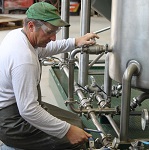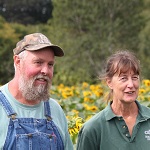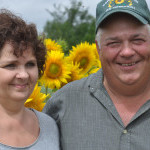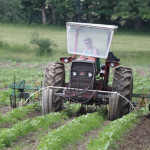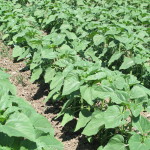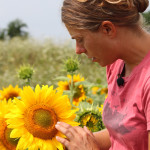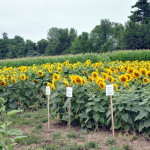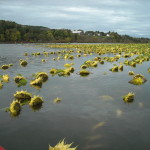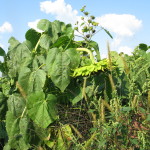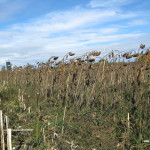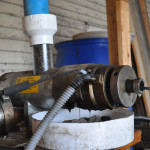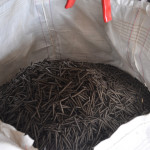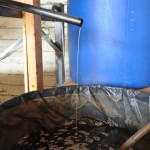Sunflower varieties fall into two major categories: oilseed and confectionery. Oilseed sunflower is the most popular biodiesel feedstock grown in Vermont. This crop is grown in rotation with other grains and grasses, is very attractive in the Vermont landscape, and yields high quantities of oil. The seeds are pressed to extract the oil, which can be used for food or further refined into biodiesel for use as fuel, and the leftover seed meal can be used for animal feed or land treatment. There are at least 16 farms growing oilseeds for biodiesel in Vermont. Expansion of this effort depends on improving yields with on-going agronomic support, increasing the availability of combines and other agricultural equipment and developing performance specifications for pressing and biodiesel refining equipment. The profiles, publications, and links to the right and image gallery below provide more information on the work being done in Vermont and nationally to expand the use of sunflowers for biodiesel production.
Copyright 2013 VSJF




